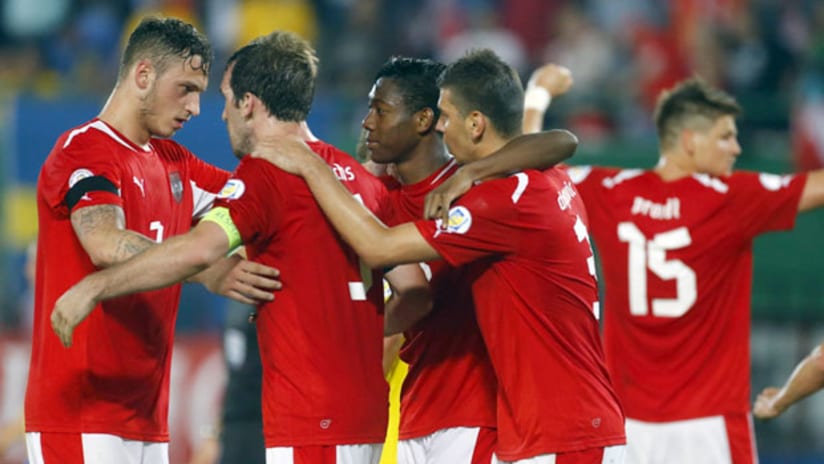When the US national team steps onto the field on Tuesday in Vienna (2:45 pm ET, NBCSN, UniMas), it will be facing a team that only just missed out on Sweden’s spot in the UEFA World Cup qualifying playoff round. Consider: If Zlatan Ibrahimovic didn't bag an 86th-minute goal in Sweden on Oct. 11, Austria would be competing in a much bigger game.
Throughout qualifying, "Das Team" showed in their performances that they are a vastly improved side, even finishing with a better goal differential than Sweden. For these reasons, the USMNT should expect to see a tough test which will help in evaluating many of the players competing for spots on the World Cup team.
Austria have not had a storied history when it comes to competing in world tournaments. They have made appearances in seven World Cups but none in the last three tournaments. In fact, they've won a single game in the World Cup since 1982 and have only scored five goals in their last two trips. They've had even less success in the UEFA European Championship, making one appearance all-time back in 2008 when they were co-hosts.
Four years ago, Austria finished third in their group in World Cup qualifying but were seven points back from France, who came in second in the group. They finished qualifying with a negative goal differential, completed only 75.34 percent of their passes (34th out of 53 teams) and possessed the ball evenly with their opponents.
Overall, finishing third might have been considered a success given that they were the fifth-ranked team (using FIFA’s world rankings) in the group coming into qualifying.
But under the leadership of Marcel Koller, who just received a contract extension, Austria hope they've begun to turn that history around. In their strong qualifying campaign, they finished with a plus-10 goal differential. They had the majority of possession in every game during qualifying except for their games against Germany. Overall, they finished qualifying with a total possession proportion of 57 percent, a 7 percent increase over four years ago.
Austria saw their passing accuracy increase to 81.47 percent and their crossing accuracy from open play was the second-highest among all European teams. These numbers resulted in Austria taking 182 shots during qualifying, the fifth-highest total in European qualifying.
The improvements Austria saw this qualifying campaign can only be explained slightly by the opponents they were playing. Their opponents in qualifying for the 2010 World Cup had an average FIFA ranking of 61.8, while this time around their opponents had an average ranking of 68.4. However, these numbers don't tell the full story.
A look at some of the individual player performances shows us how Austria have been able to improve. In this qualifying campaign, they had four different players (Christian Fuchs, Marko Arnautovic, David Alaba and Zlatko Junuzovic) create at least 17 chances.
Four years ago, no player on Austria created more than 13 chances for their teammates. Only Germany had as many players create as many chances in this cycle of qualifying. Alaba, playing in the midfield as opposed to his left back position with Bayern Munich, was tied for second in the group with six goals.
They may not be heading to Brazil, but given their recent performances, they'll have a chance to show Jurgen Klinsmann & Co. that they weren't far off and will be a force to be reckoned with as qualifying for the 2016 Euros approaches.













